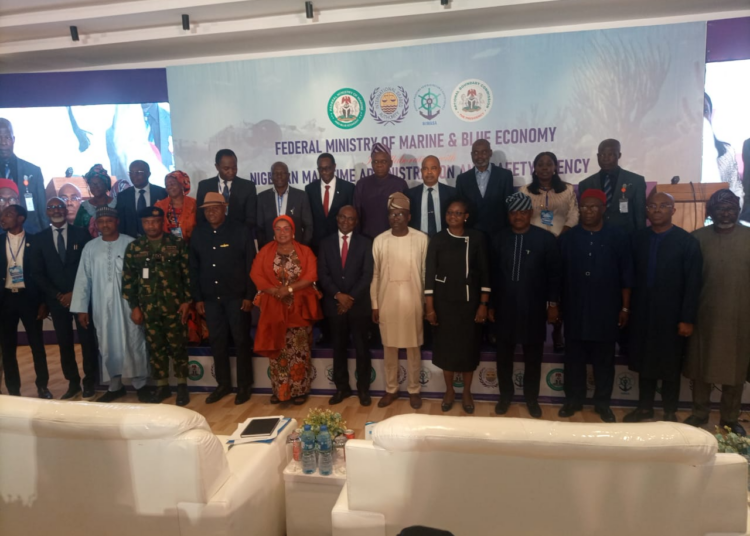Stakeholders in the Marine sector, on Wednesday, met to seek ways of harnessing the high potentials of embedded in the deep seas.
Speaking at a stakeholders’ sensitization workshop on Deep Seabed Activities in Abuja, the minister of Marine and Blue Economy, Adegboyega Oyetola said “this workshop aims to raise awareness among critical stakeholders about the importance of Deep Seabed exploration and exploitation, addressing environmental and social implications, and ensuring effective protection of the Marine environment from harmful effects that may arise from Deep Seabed activities.”
He further said ” Nigeria’s establishment of a full-fledged Ministry of Marine and Blue Economy in 2023 demonstrates our commitment to diversifying our economy and capitalizing on the global surge in deep-sea exploration. As a major oil-producing country with an extensive coastline and inland waterways, we cannot afford to lag in this new frontier.
” The transition from a fossil fuel-based to a mineral-based economy presents opportunities for Nigeria to leverage its marine resources, particularly wave and tide energy, to generate clean energy. Effective harnessing of these resources will significantly contribute to our nation’s energy needs.”
Also speaking, the director general of the Nigerian Maritime Administration And Safety Agency (NIMASA), Dr. Dayo Mobereola said due to the declining resources, there is need for exploration and exploitation of the deep seabed, which houses mineral resources and generate income for many countries.
Mobereola said “deep seabed mining presents significant opportunities for economic growth, technological advancement and resource security. By tapping into the vast reserves of polymetallic nodules, sulphides and cobalt-rich crusts found in international waters, nations can secure minerals critical to global economy, particularly in renewable energy and technological sectors. However, these benefits must be balanced with robust environmental safeguards and regulatory framework to to ensure that deed seabed mining is conducted sustainably, minimizing ecological impact while maximizing the potential for shared global prosperity.”
He further said “NIMASA will play a critical role by collaborating with relevant ministry, agencies and departments and the International Seabed Authority (ISA) in providing the regulatory framework and establishing environmental protection guidelines for seabed mining. The agency could also help develop training programs to grow local expertise in deep seabed mining technologies and operations. Promote research and development in marine science and technology to enhance knowledge of deep-sea ecosystems and resource potential.
We remain committed to ensuring that relevant legislative frameworks on the sustainable use of the Marine Environment and Safety standards are fully implemented.
“Nigeria has long benefited from its offshore oil and gas resources. As we look to the future, deep sea mining presents a unique opportunity for Nigeria to diversify its economy and secure long-term economic growth. It is an integral part of the Blue Economy, promising technological advancement, resource security, and job creation. However, this potential can only be realized if we proactively address the associated environmental, technical, and regulatory challenges.”
Also speaking, the permanent secretary, ministry of Marine and Blue Economy, Michael Oloruntola Olufemi said, ” This gathering marks a significant milestone in our unwavering commitment to harnessing the vast potential of our marine resources, fostering sustainable development, and propelling Nigeria’s maritime industry to unprecedented heights.
” This workshop aims to illuminate the opportunities and importance of exploring Africa’s continental shelf while responsible environmental management and adherence to ensuring regulatory frameworks. The ministry remains steadfast in promoting collaborative efforts with key industry players, driving innovation, and championing sustainability. We recognize the crucial role of government-private sector partnerships in unlocking the maritime sector’s full potential.”











